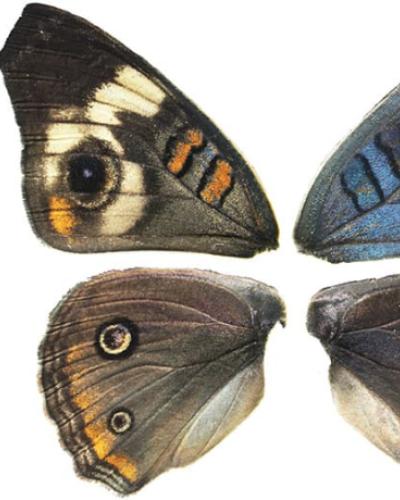For proving that butterfly wing color and iridescence are activated by a single gene, Cornell researcher Robert Reed won the 2017 Cozzarelli Prize for scientific excellence and originality.
The annual prize recognizes papers for outstanding contributions to the scientific disciplines represented by the National Academy of Sciences (NAS). Winning papers were chosen by the editorial board of the Proceedings of the National Academy of Sciences (PNAS) from the more than 3,200 research articles published in the journal last year.
Reed, associate professor in the Department of , along with colleagues Linlin Zhang and Anyi Mazo-Vargas, won in the category of biological sciences for their paper “Single master regulatory gene coordinates the evolution and development of butterfly color and iridescence.” The researchers showed that the singular optix gene plays a fundamental and deeply conserved role in the butterflies to activate wing color while simultaneously controlling blue iridescence in some species.
“It is remarkable that a single ‘paintbrush’ gene appears to control all coloration in butterflies. If you knock out this gene you get black and gray wings,” said Reed.
Using CRISPR-Cas9 gene editing technology in multiple butterfly species to “break” the gene, the change resulted in wings losing their color. The findings demonstrate that single genes can have massive, yet highly specific effects on pattern formation.
The findings also have larger implications for genes involved in evolution.
“It appears that a few master genes play an unusually central role in repeatedly driving evolution in different species,” Reed said. Scientists had long assumed that diversification of patterns as complex as those found in butterfly wings would require dozens to hundreds of genes.
Reed and his team will receive their award at the PNAS Editorial Board meeting, and will be recognized at an awards ceremony during the NAS Annual Meeting, April 29 in Washington, D.C.
This article originally appeared in the Cornell Chronicle.




